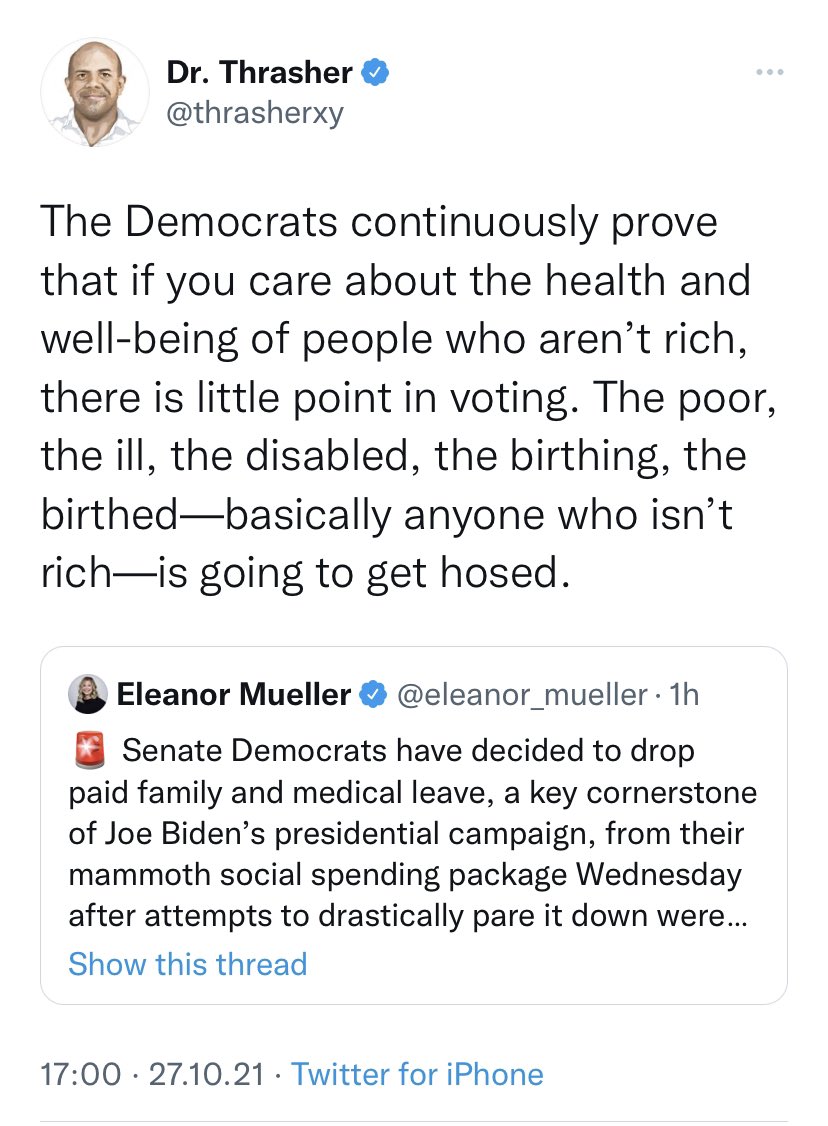
Ah yes, the wise man looks at the two major parties - the one that wants to get rid of democracy to entrench the rule of wealthy white men and the one in which most people want to bring America closer to a social democratic ideal - and yells: “Don’t you see?! They’re the same!” 

If you believe in the principles of equality and fairness, and believe that democracy is the political form best suited to realizing those principles and to recognizing the dignity of every human being, then you must see the fundamental difference between the two major parties.
If you’re still holding on to the “The two parties are the same!” shtick in 2021, you’re either incapable of producing a serious political analysis or you are not serious in your professed political principles and perhaps care about something other than democracy and equality.
I’m spending much of my time articulating my frustration with the Democratic Party’s lack of urgency and focus on protecting democracy and the Democratic establishment’s many pathologies. But today’s Republican Party is a different beast entirely, and it’s not hard to see that.
• • •
Missing some Tweet in this thread? You can try to
force a refresh



